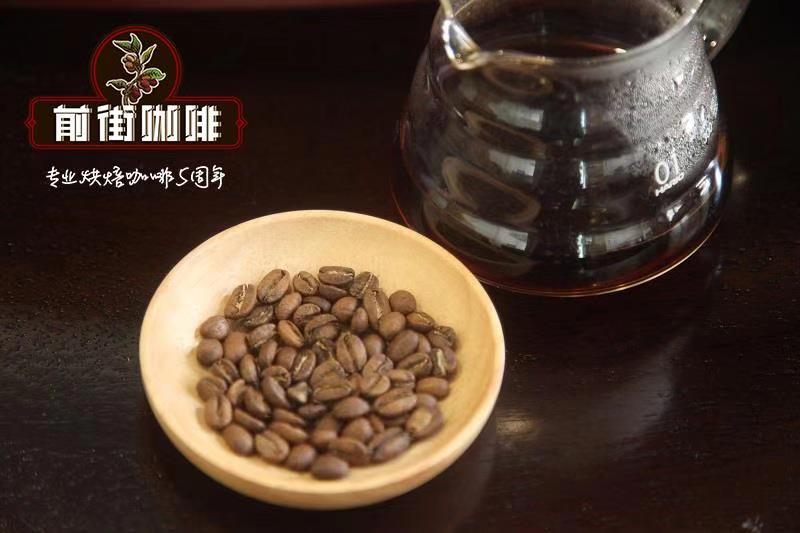Is coffee organic food? what are the brands of high-quality organic coffee beans?

Professional coffee knowledge exchange more coffee bean information please follow the coffee workshop (Wechat official account cafe_style)
People's views on organic coffee are very polarized. for those in favor of organic coffee, organic production is more helpful to the environment, while for those who are against organic, it may be mentioned that organic planting is inefficient and the certification process is expensive. and chemical residues can be burned during baking.
Compared with non-organic coffee, organic coffee production may be more labor-intensive and more expensive to produce. Then why did you choose organic?
Organic coffee is in sharp contrast to "traditional coffee", which was in the 1960s and 1970s, when producers began to plant new, high-capacity varieties with heavy use of chemical fertilizers and pesticides. But organic production is neither low-tech nor old-fashioned, but an agricultural tradition that can be traced back thousands of years.
The goal of "Open Coffee planting Technology" is basically to improve the productivity of the land, while the goal and challenge of organic production is to create a natural climate for coffee trees to grow, while maintaining productivity in the face of diseases, pests and climate change. Open cultivation makes coffee beans grow as widely as American wheat or soybeans, which is completely different from the traditional way of growing coffee beans in the shade of forest trees. Although it can increase production capacity, it needs more water to irrigate and cannot spread the risk for coffee farmers. It will do harm to the economy of coffee-producing countries.
"the more nutrients a plant absorbs from the soil, the more resistant it is to any pest or disease. The core of plants is to use the effects of available food, microorganisms and ecosystems as the source of nutrition. "
There are many ways to fertilize and protect coffee without using chemicals. One of the most obvious is the use of compost made from coffee pulp rich in nitrogen and potassium.
Organic production usually results in lower yields, but this is not always the case. "because we are managing the design of the process, we allow organic to achieve the same output as traditional production," says Juan. "
However, labor costs can be higher than traditional non-organic production: organic cultivation requires mixing organic compost, then transporting it to the fields, and weeding by hand, a process that is more laborious than directly spraying synthetic herbicides or fertilizers.
The coffee grown by some small farmers is also organic. Due to the complicated paperwork and certification fees for organic certification, small farmers cannot afford the certification process, and chemical fertilizers and pesticides are too expensive, so even without certification, it can also be proved that they grow organic coffee, including most small farmers in Ethiopia.
END
Important Notice :
前街咖啡 FrontStreet Coffee has moved to new addredd:
FrontStreet Coffee Address: 315,Donghua East Road,GuangZhou
Tel:020 38364473
- Prev

What is the speed of coffee roasting?| What happens at different baking stages?
Professional coffee knowledge exchange More coffee bean information Please pay attention to coffee workshop (Weixin Official Accounts cafe_style) Coffee beans, after roasting will become dark brown, and also after roasting will appear a variety of flavors, but in any case only know the concept of shallow, medium and deep, what will happen in roasting? What happens at each stage?
- Next

Panama 2019 BOP Water washing Group Champion Alida Manor Green Top Rose Summer treatment Flavor introduction
Professional coffee knowledge exchange more coffee bean information please pay attention to the coffee workshop (Wechat official account cafe_style) Republic of Panama, referred to as Panama, is the southernmost country in Central America, with a total area of 75517 square kilometers, the capital Panama City. The isthmus of Panama in Central America is bounded by Colombia to the east, the Pacific Ocean to the south, Costa Rica to the west and the Caribbean Sea to the north. Country
Related
- Beginners will see the "Coffee pull flower" guide!
- What is the difference between ice blog purified milk and ordinary milk coffee?
- Why is the Philippines the largest producer of crops in Liberia?
- For coffee extraction, should the fine powder be retained?
- How does extracted espresso fill pressed powder? How much strength does it take to press the powder?
- How to make jasmine cold extract coffee? Is the jasmine + latte good?
- Will this little toy really make the coffee taste better? How does Lily Drip affect coffee extraction?
- Will the action of slapping the filter cup also affect coffee extraction?
- What's the difference between powder-to-water ratio and powder-to-liquid ratio?
- What is the Ethiopian local species? What does it have to do with Heirloom native species?

